Words of wisdom and miscellaneous facts by Dr. Wysong and others.
This is an accumulation over several decades and the accuracy cannot be attested to.
Wysong vs Nemos Bible Debate
COSMOLOGY LIES AS BIG AS THE UNIVERSE
⬇️ Click to scroll down to article
"We'll know our disinformation program is complete when everything the American public believes is false."
—William Casey CIA director 1981
The bigger the lie the greater its acceptance because people cannot believe authority figures would ignore reality.
To find truth we must hate the lie more than love accepted beliefs.
Fraud vitiates everything it touches. (common law maxim) Nudd v. Burrows (1875) 91 U.S. 416.
Fraud destroys the validity of everything into which it enters. Boyce's Executors v. Grundy (1830) 28 U.S. 210.
Fraud vitiates the most solemn contracts, documents and even judgments. United States v. Throckmorton (1878) 98 JU.S. 61.70.
FORWARD
The accepted cosmogony/cosmology (origin and nature of the universe) belief is:
—William Casey CIA director 1981
The bigger the lie the greater its acceptance because people cannot believe authority figures would ignore reality.
To find truth we must hate the lie more than love accepted beliefs.
Fraud vitiates everything it touches. (common law maxim) Nudd v. Burrows (1875) 91 U.S. 416.
Fraud destroys the validity of everything into which it enters. Boyce's Executors v. Grundy (1830) 28 U.S. 210.
Fraud vitiates the most solemn contracts, documents and even judgments. United States v. Throckmorton (1878) 98 JU.S. 61.70.
FORWARD
The accepted cosmogony/cosmology (origin and nature of the universe) belief is:
A Big Bang of nothing created an infinite meaningless universe containing atomic dust that gravitationally accreted into heavenly bodies including our Earthball moving in several different directions at 2.8 million mph and holding an atmosphere next to the vacuum of space while spontaneously forming life from primeval sludge that then evolved into complicated rocks called humans with no free will.
Long ago it became clear to me that the materialistic evolutionary part of that credo was false.
But I was on board with the cosmology part. After all, we see rocket ships going to and fro, there is a "Space Force," pictures of Earth and planets abound, astronauts float around and in the International Space Station, thousands of people and billions of dollars support it, and, of course, "all" the experts believe.
To question this is to be a conspiracy theorist, misinformationist, or even a lunatic. Oh my, we must, after all, follow the crowd.
The idea that we are being lied to about space didn't even enter my mind until a few months ago when what was left of my naive and trusting innocence had been totally demolished with the COVID-19 fraud.
We, the crowd, extend our trust to institutions charged with looking after our interests. But government, Big Medicine, education, media, industry, Big Tech, science, and NASA chase money, their own security, and even power over us.
That should not inspire confidence in beliefs they create, promote, protect with censorship, and even demand acceptance of.
If we want truth, we have to find it ourselves. To do that requires the opposite of trusting in others. It means sleuthing what the powers that be try to hide from us in internet archives, banned videos, censored "disinformation," and what "fact checkers" say isn't so.
Probing into the subject I was stunned to learn that:
That means unproven beliefs, stories, and even fakery are being passed off as science and truth.
This subject may seem inconsequential to everyday life. But that's only true if we aren't being lied to about it. If the truth is being hidden from us, we can be sure of one thing, it's not being done for our benefit.
Truth seekers learn that the scale and ostentatiousness of lies being fed to us means nothing can be tacitly trusted.
Everything of importance from government, media, industry, medicine, education, economics, science, history, religion, and popular society must be assumed to be false unless we prove otherwise by doing our homework and thinking critically.
This series will provide wake-up information to help you discover lies as big as the universe.
But I was on board with the cosmology part. After all, we see rocket ships going to and fro, there is a "Space Force," pictures of Earth and planets abound, astronauts float around and in the International Space Station, thousands of people and billions of dollars support it, and, of course, "all" the experts believe.
To question this is to be a conspiracy theorist, misinformationist, or even a lunatic. Oh my, we must, after all, follow the crowd.
The idea that we are being lied to about space didn't even enter my mind until a few months ago when what was left of my naive and trusting innocence had been totally demolished with the COVID-19 fraud.
We, the crowd, extend our trust to institutions charged with looking after our interests. But government, Big Medicine, education, media, industry, Big Tech, science, and NASA chase money, their own security, and even power over us.
That should not inspire confidence in beliefs they create, promote, protect with censorship, and even demand acceptance of.
If we want truth, we have to find it ourselves. To do that requires the opposite of trusting in others. It means sleuthing what the powers that be try to hide from us in internet archives, banned videos, censored "disinformation," and what "fact checkers" say isn't so.
Probing into the subject I was stunned to learn that:
| Nobody, including any scientist, can prove any aspect of the approved cosmogony/cosmology belief using experimentation and the scientific method. |
That means unproven beliefs, stories, and even fakery are being passed off as science and truth.
This subject may seem inconsequential to everyday life. But that's only true if we aren't being lied to about it. If the truth is being hidden from us, we can be sure of one thing, it's not being done for our benefit.
Truth seekers learn that the scale and ostentatiousness of lies being fed to us means nothing can be tacitly trusted.
Everything of importance from government, media, industry, medicine, education, economics, science, history, religion, and popular society must be assumed to be false unless we prove otherwise by doing our homework and thinking critically.
This series will provide wake-up information to help you discover lies as big as the universe.
"We'll know our disinformation program is complete when everything the American public believes is false."—William Casey CIA director 1981
"We know they are lying, they know they are lying, they know we know they are lying, we know they know we know they are lying, but they are still lying."—Aleksandr Solzhenitsyn
"We know they are lying, they know they are lying, they know we know they are lying, we know they know we know they are lying, but they are still lying."—Aleksandr Solzhenitsyn
|
11/21/2019
Click to enlarge, Ctrl + to enlarge further; Ctrl 0 to return to 100%
Freedom is a great idea and most societies have come a long way in advancing it. Unfortunately, it seems that all good ideas with a good start in principle and intention veer off once people lock on to them and they pick up steam. Once any idea is applied apart from reason, all bets are off.
For example, there are movements afoot to make schools multicultural in the name of freedom and equality. It's difficult enough to accommodate just Spanish, Chinese, Vietnamese, and Ebonics. What happens when the Bantus immigrate here with their 500 languages? No society can hold together if its population balkanizes into factions that cannot communicate with one another. At an airport a 90-year old white female American citizen in a walker is practically strip searched to prevent a terrorist attack, while a young Arab man carrying a Koran is allowed to pass so as not to profile. The media will occupy the airways night after night in discussions about somebody of note saying the "n" word. Pressure is on the military to give slight female soldiers the same front line hand-to-hand combat positions as muscled up men. In an attempt to not be discriminatory toward pets, they are now called companion animals (why not feline and canine Americans while we're at it), and their owners, guardians and caretakers rather than pet owners. In the zeal to root out bias and insure freedom, we have confused freedom with equality. In attempting to make everything politically correct by being equal, we have lost our grip on reason. Changing terminology, proscribing words, making a law, or creating a social program will never achieve the objective of making people equal. But all is most certainly not lost since freedom is not the same thing as equality anyway. Although race has been worked and reworked to the point of creating racial fatigue, the issue that matters seems to have been lost. For example, slavery denied blacks their freedom. To right this wrong, both blacks and whites went through the throes of the Civil Rights era. Freedom means the ability to explore and pursue one's talents and to enjoy the rewards. Equality means two people are the same in all respects, sort of in a mathematical sense. Freedom is possible, equality is not. Since no two people are the same, no two people will have the same result from their go at life and thus cannot be equal in their relative stations. They can, however, be equally free. This simple truth is ignored in the racism debate. The only thing about racism that can be solved is freedom, not results. Everyone should have the right to open a business, but everyone should not be guaranteed success. Everyone should be able to try out for a football team, but not everyone should be guaranteed to make the cut. So, quotas for each race in each sport, in each business, and in each school make no logical sense. People should be what they have earned. Let's also face a reality nobody likes to talk about by considering the obvious answers to these questions: Do some Caucasians not prefer the company of African Americans? Do some African Americans not prefer to be with Asians? Would some Hispanic business people rather hire Hispanics than Russians? The answer is yes in each case, and no governmental policy is going to change these innate comforts, likes, or dislikes. The American business community thrives in spite of racial preferences. There are all-Chinese, all-Vietnamese, all-Spanish, all-Greek, all-Jewish, all-Italian, all-male, all-white, all-gay, all-black, all-young, all-old, and all-female businesses. This practice not only does not impede success, it can help create it. It is de facto discrimination, but it does not really encroach on freedom. It's just an expression of the reality of inequality and preferences that exists between all people. When someone hires another, picks a mate or friend, votes for a candidate, moves into a neighborhood, or chooses a school, the spectrum of variables are assessed with prejudice. This cannot be stopped, not does it need to be for people to have freedom. By attempting to force racial melding, we deny the reality that birds of a feather flock together. That is not an anomaly; it is virtually a scientific law. There is a natural tendency for creatures to prefer to associate with those most like them. Build a big saltwater fish tank. Put in couples of a hundred different species of fish. Give them a few days. They are all fish, but they will all pair up with their own kind. Even within a given race, people will preferentially gather in their families and give preferences accordingly. It's just the way things are. Notice that since the Civil Rights era, with full freedom guaranteed, races have reinitiated segregation. There are Hispanic, black, and Chinese clubs and causes. There is Black Pride Day, the United Negro College Fund, Black History month, black-only colleges, Martin Luther King Day, the NAACP, BET, Cesar Chavez Day, and so on. There are even reversions to native cultures and school curricula supporting such. The largest voting blocks for candidates come from voters of their own race. (Ironically, the most enthusiastic are those who clamor for "racial equality.") This tendency toward preferences and segregation does not mean different races cannot come together in peace and harmony; it just means that in the main they prefer their own kind. That does not need to matter. What about the argument that some races have at one time been abused by another race as a justification for special treatment centuries later? The problem is that all people can claim historical subjugation. Japanese and German U.S. citizens can point to World War II imprisonment in America; the Chinese can bemoan railroad labor oppression; Native Americans can complain about loss of land, genocide, and forced internment on reservations; African Americans can point to slavery; immigrants can recall an existence that included child labor and wages less than would permit survival. Anyone can dig into their history and find abuse of their ancestors. Does that give anyone the right to special treatment by the descendents of the subjugators? If I am Jewish and my neighbor a German, should he now be mowing my lawn for free? The racial issue has become the perfect excuse for government to further entrench socialistic practices. By the socialist's logic, no one should be better off than anyone else. The socialist is particularly guilty of confusing equality with freedom. The assumption that all people can be equal denies individuality and even biology. It is heterogeneity and variation in nature that create the potential for biological and social improvement, and in some instances survival itself. In the clamor for political correctness, even the obvious difference among the races is denied. If there were no differences we would not be able to delineate race to argue about it in the first place. Differences are not only skin-deep. Races differ in many anatomical and physiological ways. These differences can be linked to environmental factors that helped shape their genomes. Eskimos are rounder, shorter, and fatter (170 lb. average) and have higher (warmer) metabolic rates than taller and skinnier Algerian Berbers (125 lb. average) living in the desert. This doesn't make one 'better' than the other, just better suited to different climates. The rounder Eskimo has less body surface exposed to the cold, and their higher body fat creates insulation and increased (warm) blood volume. The Berber needs no insulation and the greater body surface area helps cooling.
Races differ in body shape, eyes, noses, blood type, body hair (Caucasoids have the most, Eskimos the least, with many having no pubic hair whatsoever), hair texture, skin color, ear wax (98% of Northern Chinese have dry-type ear wax, 7% of American Blacks do), finger and hair whorls, brain size, shape of teeth, scent, birth defects, configuration of calf muscles, and disease susceptibility. Africans are vulnerable to sickle-cell anemia, the Pima Indians to diabetes, Asians are more likely to be lactose intolerant, and Caucasians are dropping like flies from atherosclerosis.
All dark skinned people (the melanin skin pigment shields against sunlight) who move to live above about 30 degrees latitude (top half of U.S.) are virtually assured of serious vitamin D deficiency (normally produced when the sun strikes the skin). With that arise myriad degenerative diseases and a greater risk of earlier death than for those who stay in southern latitudes.1 This, not economics, access to medical care, or social circumstances is the reason black life expectancy in America is less than for whites. Denying racial differences is both wrong and deadly.
It is not by accident that certain sports have predominant races. Each sport requires certain physical skills. Since each race has different physical attributes (generally speaking), we would expect different races to predominate in different sports (generally speaking). Professional sport is about winning and it doesn't serve the bottom line to make those less capable first string for the sake of political correctness. Similarly, some industries that require special skills might recruit those groups with those skills. Some may be better at heavy manual labor, others at speed, dexterity, repetitive work, mechanical problems, or math. There may be special social circumstances other than race here and there that account for the domination of one race in certain fields, but over time, particularly in a market economy where there is freedom, who is best and what is real statistically rises to the top. Differences are real. Whether they are innate or induced by culture is as hard to determine as answering the old conundrum, which came first, the chicken or the egg? Culture (through epigenetics) and environment can create mental and physical racial differences; racial differences in turn create physical aptitudes for different skill sets.
If we can delineate physical differences between the races, is there any reason not to believe that there might be some differences in mental skills? It is not as though the genetics governing the brain got locked away in a vault over thousands of generations while the genetics for every other physical attribute varied and sorted with the races. Variation among races does not end at the blood-brain barrier.
(Note: For those of you with racial sensitivities filed to razor edge, I said different, perhaps better suited for certain environments or tasks, not generally inferior or superior.) Actually, it is not racist to argue that there are differences among races; it is racist to argue that there are none. Here's why. It is popularly argued that the predominance of a race in a particular field is due to such things as effort, commitment, sacrifice, diligence, and circumstances. That would mean, for example, that the predominance of blacks in certain sports is due to nothing more than determination. But then that would mean blacks could predominate over every other race in every other field using their 'determination.' That would make them a super-race. Any group claiming they are superior to all others in all categories is truly racist. Thus, those who try to discount the innate differences in race to account for the way particular races tend to (generally speaking) rise to the top in certain areas of skill, and instead make an attribution to effort alone, box themselves into a racist argument of superiority. In effect they say: "Our race is the best at such and such because we work so hard at it, not because of any special physical feature." They don't continue with the logical consequence of this, namely: "Therefore, our race could be the best at all other endeavors if we just applied ourselves, so, our race is 'better' than yours." About the only way an immaculately raceless and homogenous society could ever actually be achieved would be for intermarriage to be mandated. With enough time everyone would become 'gray' skinned, 'gray' gutted, and 'gray' brained. But even 'grayness' will not erase differences. In any given group, some will succeed more than others. Do we dare not succeed for fear of being 'succeedist?' Moreover, since virtually every person on Earth is as unique as their fingerprint, and therefore their own separate 'race,' we are all guilty of racism because each of us prefers ourselves to anyone else. To make society perfectly equal, all traits for which people are discriminated against must be leveled, not just race. We would need laws that eliminate prejudice about weight, sex, comeliness, coordination, language, regularity of the teeth, intellect, height, neighborhood, occupation, amount of make-up, shape of the nose, color of the eyes, hairdos, dress, religion, ability to carry a tune, sense of humor, personality, shape of the feet, size of breasts or biceps, and running speed. Why does skin color get to enjoy such preeminent 'ism' status in public debate and policy when there is discrimination everywhere for just about everything? Affirmative action would have to be applied to NBA basketball. The vast majority of first stringers on all NBA teams are African American. There is not a whisper of protest. Why isn't there a government program that forces all NBA teams to put a proportionate number of Caucasians and short people on the first string, reflecting actual population percentages? In this case there would be about nine Caucasians and short people for every tall African American. If we're going to be fair in the affirmative action sense, English-speaking restaurants must hire Spanish-speaking waitresses, homely people must be able to win beauty pageants, a proportion of NFL linebackers would be required to be 90-year-old women, those with lowest IQs should be evenly distributed in highest corporate positions, and quadriplegics should be on our Olympic 100 meter dash team (and rig it so they win a certain percentage of time in order to be 'fair'); we must give mechanic jobs to some who test low in mechanical aptitude, make sure some who cannot carry a tune cut albums the rest of us are forced to buy, let those who have no technical or mathematical skills have an equal say in the space shuttle control room, and give the blind equal opportunity as air traffic controllers. If skin color is the only real difference between humans, why not? Obviously trying to be politically correct and denying the obvious leads to absurdity. But where does one draw the line once the Pandora's box of declaring everyone equal is opened? Facing reality, not bending to absurdity, is what advances the human condition. The point is that although there are intractable differences between people, sexes, ages and races, that should have nothing to do with freedom. And, by and large, it no longer does. Although America lost its naiveté in the 1960's as it went through an age of enlightenment with regard to racism, Vietnam, women's rights, and environmentalism, what is done is done and should be put to rest. But social movements, like a train, are slow to get started—but once they pick up steam they continue way beyond their useful destination. By making equality the same thing as freedom, society assures itself that a sense of injustice will never go away no matter what is ever done. Shelby Steele, a black research fellow at Stanford University, points out in White Guilt, that white society has made its residual shame for slavery and racism so controlling that it has lost any identity as a race other than: "I defer to other races."2 (Notice that a White Pride Day or White History Month would be outrageously racist.) Steele goes on to argue that when, as a society, whites became more introspective in the 60s they came to define their morality in terms of race, gender, diversity, excesses of empire, big business, wealth, poverty, tolerance, the environment, and the like. Virtue on these 'big' issues became so popularized, so necessary and valid that it served like an indulgence granting a morality pass on all the small things—like sex, ethics, decency, work ethic, and personal responsibility. For example, notice that just about any sexual or ethical indiscretion of a politician tends to be given a pass if they are correct on the 'big issues' of race, affirmative action, militarism, and the environment. Steele explains that after the overt garden-variety racism was put aside in America, black society floundered in its newfound freedom. The sense of community from having a common enemy was lost. Simply melting into white society did not do, since they clearly felt themselves different from white. Out of this black disorientation and a carryover sense of futility and pathos from slavery and pre-60s overt racism, was born the idea of global racism. This was a supposed universal and endemic racism that was so malignant and ubiquitous that nobody could escape it, and no solution could ever resolve it no matter how much whites put their shoulder into it or flogged themselves in contrite lamentations. The enemy was resurrected, victim status revived, an unearned sense of superiority emerged, and group black identity returned. This new, post–Martin Luther King version of racism has held public attention for the past forty years. It manifests as a hodgepodge of jerry-rigged, puritanically correct reactions such as quotas, affirmative action, entitlements, reparations, busing, inclusion, and multiculturalism. With real racism essentially gone by the wayside (for society as a whole), global racism took up the flag. It became defined as an unavoidable burden all blacks faced. Any occasional overt racist act or word, any perceived inequality, or if matters related to race are not handled with utmost decorum and tippy toes, these events are taken as proof of this deterministic global racist force hamstringing blacks. But by and large, this was a rage in search of any true victims. Although blacks and other races may no longer be excluded from restaurants, pushed to the back of the bus, and hunted by white-robed bigots, they are being convinced by post-King black leaders that any inequality with whites was not of their doing, but rather was because they were pawns moved by forces much bigger than them. The power that could then be exerted on whites was derived not from being better, but from not being better. Steele goes on to explain that races who define themselves by imagery of past evils and interminable preoccupation with race achieve nothing but a feeling of being aggrieved, entitled, and relieved from responsibility. He recounts from his experiences that the black pride mask is worn only for whites, and the heralded new global racist agenda had no real purpose other than reinforcing white guilt. In fact, the race card has become of such high value that it has become the black community's single greatest opportunity. Being non-white equals privilege and opportunism, as well as an excuse to escape common decency, decorum, and moral duty (in some inner cities, blacks have a 90 percent rate of illegitimate births), flout law (prisons hold them in vastly disproportionate numbers), avoid enculturation (English skills have decreased since affirmative action), and pass off personal responsibility (resulting in black cultural decline). The more that whites can show themselves genuflecting to demands for race entitlement (particularly when the public relations cameras are rolling), the more the woundedness of race is affirmed in the public's mind and the more strident and militant the accusations. Even large corporations such as Toyota, Coca Cola, and Texaco are bullied into hundreds of millions of dollars in 'damages' if there is even a hint at breaching racial puritanical propriety. Moral relativism has come of age, but is certainly not applied to race. Everything is picayune relative to America's past moral infidelities. The new hyped racism and "militancy of inferiority" (Steele) has only one purpose: white obligation. Simply being other than white is reason for rage regardless of the freedom and opportunity that exist. But the end result of promoting one's victimization is slavery because it means dependence (again) on the good offices of the white man and his magnanimity. On the other hand, there is also value in this for whites since they get no moral credit if the races lift themselves without white intervention. So it serves white moral justification to keep the race issue alive by throwing bones of atonement like affirmative action and quotas. This puts blacks in the position of "shuffling and bowing for a tossed coin" (Steele) and should be humiliating for the stigma of incapability it implies, not celebrated as victory. People need respect for their talents and accomplishments, not tolerance because of color. Race, rather than excellence, should never be the criterion for achievement. To claim that there can be no equality without white intervention is to focus on whites as the only agents of change and to cast other races as intractably inferior, incapable, and perpetually weak. Once a black militant himself, Steele writes: "Since the sixties, black educational weakness has been treated primarily as a problem of racial injustice rather than as a problem of blacks rejecting or avoiding full responsibility for raising their performance levels. Thus we get remedies pitched at injustices rather than at black academic excellence—school bussing, black role models as teachers, black history courses, 'diverse' reading lists, 'Ebonics'… jerry- built African names…gimcrack educational ideas… multiculturalism, culturally inclusive classes, standardized tests corrected for racial bias, and so on. All this and no demand for parental responsibility, for harder work on reading, writing, and arithmetic." In society's haste to achieve racial moral virtue, we have become alienated from the principles that address causes and create solutions. The race issue has become a currency to escape individual responsibility. Freedom has become redefined as equality in a sort of paradise where individuals have no responsibility. In that paradise where all human woes would dissolve in the holy water of tolerance, every hint or vestige of discrimination would be purged. The disjunction between the race card and reason has become so outrageous that morality is twisted to mean dissociation with any part of society attached to the roots of racism. Even personal responsibility, which lies at the core of the Constitution and accounts for American success, is considered a white notion and therefore racist and rejected. The ongoing denial that freedom exists is necessary for both whites and other races in order to sustain racism as a valuable issue. That's because if there is freedom, everyone would be responsible for their own inferiority and for lifting themselves up from it. So the race issue continues with claims of victimization by abstract systemic forces and by denial that freedom exists. Whites accommodate this charade, either out of ignorance or in order to sustain a false sense of morality. Races that shift responsibility to others only breed their own weakness. Those who help those who can help themselves only fool themselves about their virtue in doing so. In the end, everyone is deceived and distracted from the primary issue—individual responsibility. It was good that America awakened to injustices for which it was responsible. They have been by and large corrected and are now being overcorrected. There is thus no utility in wallowing in the matter by either claiming victimization or beating breasts in contrition. We are back to what freedom means for each of us: reaching inside to find out who we are and what our best talents are. Nobody can be a better person without taking full responsibility for doing so. It is also necessary to understand that we do not get to be equal to every other person on the planet. If someone is better than us at something, that's life. We can be better than them at something else. Differences do not make one person innately better than another. Differences are to be respected and put in perspective, not used as a cause for prejudice or an inferiority complex. Differences are what make us as a society more healthy, resilient, adaptable, and survivable. We should enjoy people differences. They make life more fun and interesting. As long as rights of opportunity are not being infringed upon, then racial difference is no issue at all other than something to celebrate. Most everything said above applies as well to sexism. It, too, has ridden the wave of post-socially enlightened American contrition too far by confusing freedom with equality.
Men and women are different in so many ways. That does not make one an innately superior creature to the other, just superior in certain ways. Women can bear children and nurse them and men can't. That's one biggy. Men are usually stronger than women. Such biological attributes do make each of the sexes more suited to different tasks. If that is discriminatory, complain to politically incorrect Mother Nature.
Here are more differences (and don't get picky, these are generalizations and there are always exceptions): 1. Men average 5' 9" in height. Women average 5' 4". 2. Men carry 1-1/2 times as much muscle and bone and 1/2 the fat of women. 3. If asked, men add an inch to their true height while women subtract more than two pounds from their true weight. 4. Women live an average of 2,665 more days than men. 5. More than 8% of men are alcoholics compared to 3.5% of women. 6. Women remember details more effectively than men.
7. Men have a weaker sense of smell than women but are more sensitive to light and sound.
8. Men as bosses are more prone to use criticism and ultimatums. Women more likely use a counseling approach. 9. Women develop cellulite; men are more inclined to big bellies. 10. 85% of women want to lose weight, 45% of men want to gain weight. 11. Most men put their pants on left leg first. Most women start with the right leg. 12. Men have double the risk of heart disease. 13. 71% of women spank children, 30% of men do. 14. The heaviest weight lifted overhead by a man is 560 lbs., compared to 286 lbs. for a woman. 15. The fastest mile run by a man is 3:46.32, for a woman it is 4:15.61. 16. Men commit 62% of violent crimes, compared to 38% by women. 17. There are 2,211 men and only 33 women on death row. 18. The chance that a man talks to himself is 1:12, compared to 1:7 for women. 19. 68% of men like the way they look in the nude, only 22% of women like the way they look nude. 20. 53% of men snore, 23% of women do. 21. The chance that a man is color-blind is 1:25, for women it is 1:50,000. 22. The chance that a man's best friend fantasizes about his wife is 1:2.5, compared to a chance of 1:6.6 for a man's best friend's wife fantasizing about him. 23. 37% of men have had an extramarital affair, compared to 29% of women. 24. The likelihood for a woman to go to a mall for entertainment is 10 times greater than for a man. 25. The likelihood for a man to spend a weekend afternoon watching a sports event on television is 10 times greater than for a woman. 26. The largest voting block for women candidates are women who think sex discrimination is unfair; the largest voting block for men are men who think sex discrimination is fair. 27. The success rate for men who use the pickup line "Hi" in a bar is 7%, whereas the same pickup line for a woman nears 100%. The uniqueness of men and women is sure and obvious. Each sex should nurture and celebrate who they are, not pretend they are one another. Women who understand this can own themselves and exude security and intelligence. They need not feel they must play superman in a bra or waste time attempting to erase indelible differences so as not to be viewed as a pawn of patriarchy. Out of innate differences between the sexes spring children. How could anything be more correct or fundamental? Mom and dad differences make a wonderful complement, changing the 1 + 1 man-woman bond equal to more than 2. To competently face the Herculean task of rearing a family, that kind of math is needed and is certainly not by accident.
The last -ism I would like to address has not yet become popularized, fashionable, and beaten to death. Ageism is perhaps cruelest because of its subtlety and the way it creeps up on all of us. It's like being born one race and totally assimilated into that culture, only to gradually turn into another race and be shunned by your original race. When we age we keep moving from one age group to another—accepted into a new one, ostracized from the previous one.
Reflect for a moment. Regardless of your age, think back to the you that was on the grade school playground. Notice that the you that was inside the child playing on the swings has not changed, just the shell has. This should help us empathize and understand that age does not really turn people into different creatures at all. That elderly person bent and shuffling along, inside, in their own mind, is still the same person they were when they were riding a tricycle. Old people are just children trapped in failing body machines. If they seem removed and distant, it's because they are physically handicapped, bored with the folly of many of life's activities, or have acquiesced to being excluded. Age makes one wiser, not different inside, or insensitive to how others treat us. The tragedy for the elderly is that they not only endure a failing body, its limitations, and pain, but younger society ignores and discards them. To our own detriment we carry this bias against the aged with us when we ourselves get older. If a person figures that by age 40 they should not be trying to beat their record in the 100-yard dash, that it is futile to try to create a better physique by age 50, by age 55 they should be retiring, or that by age 70 sex life should be over, then so it will likely be. This is not to say that we should not accommodate the limitations of age, just that we should not be old folks in our dotage before it is forced upon us. On the other hand, there is little that can't be done at any age. We can always begin a new career, gain new knowledge, become a community leader, make a better world, and find new friends. Even as our body does inevitably decline, we can stave off or minimize that decline as much as possible and even achieve new physical, mental, and social feats. It simply requires not ever giving up, and certainly not surrendering to popular biases about age. This section should at least raise the suspicion that society is moved by preconceived ideas that have not been examined carefully. We too easily attach to sound bites and movements that simply make us feel good for the moment and justify how we wish to behave. Consequently we are mired in a social froth of government, taxes, criminal justice, entertainment, and isms that have little to do with the real world and lasting solutions. Solutions require that we pay particular attention to the fact that in the end we are responsible for what we make of life. Freedom to be the best we can be—which does not mean being 'equal' to everyone else—is the greatest gift we will ever receive. But it is merely the starting point. Squandering it by claiming victimization and not taking responsibility for ourselves is not enlightened or politically correct, it is a life wasted. If you agree, disagree, have questions, or have a correction please let me know. Comment below or email me at [email protected]
Leave a Reply. Choose Any Name
Comments
|
Introduction
1. We Can Agree 2. Possibility Thinking 3. The Solver Principles 4. Our Owner's Manual 5. We Live in A Unique Time 6. Being Health Smart 7. The Illusion of Youth Health 8. The Good Old Days 9. Timing Life 10. Exercise 11. Hormones and Steroids - A Two-Edged Sword 12. The Female Hormone Problem 13. Growing Older 14. Squaring the Curve 15. Healthy Dos and Don'ts 16. The Medical Profession 17. The Greatest Threat to Health 18. Don't Surrender to Medical Care 19. But We Live Longer Today 20. Dollars Don't Make Health 21. Disease Does Not Strike Us 22. Germs Don't Cause Disease We Do 23. From Where Does Healing Come 24. The Best Food 25. Food Ethics 26. Healthy Weight 27. Healthy Eating Ideas 28. First Things First 29. Hopelessness 30. Depression 31. Memories 32. Addiction 33. Blaming the Parents 34. Surviving Tragedy 35. Touch 36. Music as Healer 37. Humor 38. Pets as Life Savers 39. Pet Keeping - A Serious Responsibility 40. The Myth of 100 Complete Pet Foods 41. Feeding Pets as Nature Intended 42. Industry vs. Earth 43. Population 44. Modernity's Deception 45. Animal Rights 46. Biophilia 47. Respect for All Life 48. Doing Good With Business 49. The Global Economy 50. The Power of Money 51. Financial Affairs 52. Work as Friend 53. Government 54. The End of Civilization 55. Freedom Is Not Equality 56. Sex 57. Being in Love 58. Marriage - The Union of Opposites 59. Divorce 60. The Family Nest 61. Having Babies 62. Children 63. The Empty Nest 64. Experience 65. Education 66. Life Is Uncertain 67. Things Mound Up 68. Murphy's Law 69. Life's Predictability 70. Finding Home 71. Learn From History 72. Shaping the Future 73. The Other Line Always Moves Faster 74. Little Things Add Up 75. Growing Up 76. Alone 77. Hope 78. Paying the Success Price 79. Change A Wonderful Thing 80. Being the Best You Can Be 81. Do Something, Something Happens 82. Change the World 83. Growing Good People 84. Words 85. Genius 86. Listen and Learn 87. Mind Over Matter 88. Looking Good 89. Protecting Yourself 90. Self Sufficiency 91. Life Is Math 92. Ethics 93. Conscience 94. The Long View 95. Being Real 96. Change 97. End and Beginning Figures |


 YouTube
YouTube Podcast
Podcast
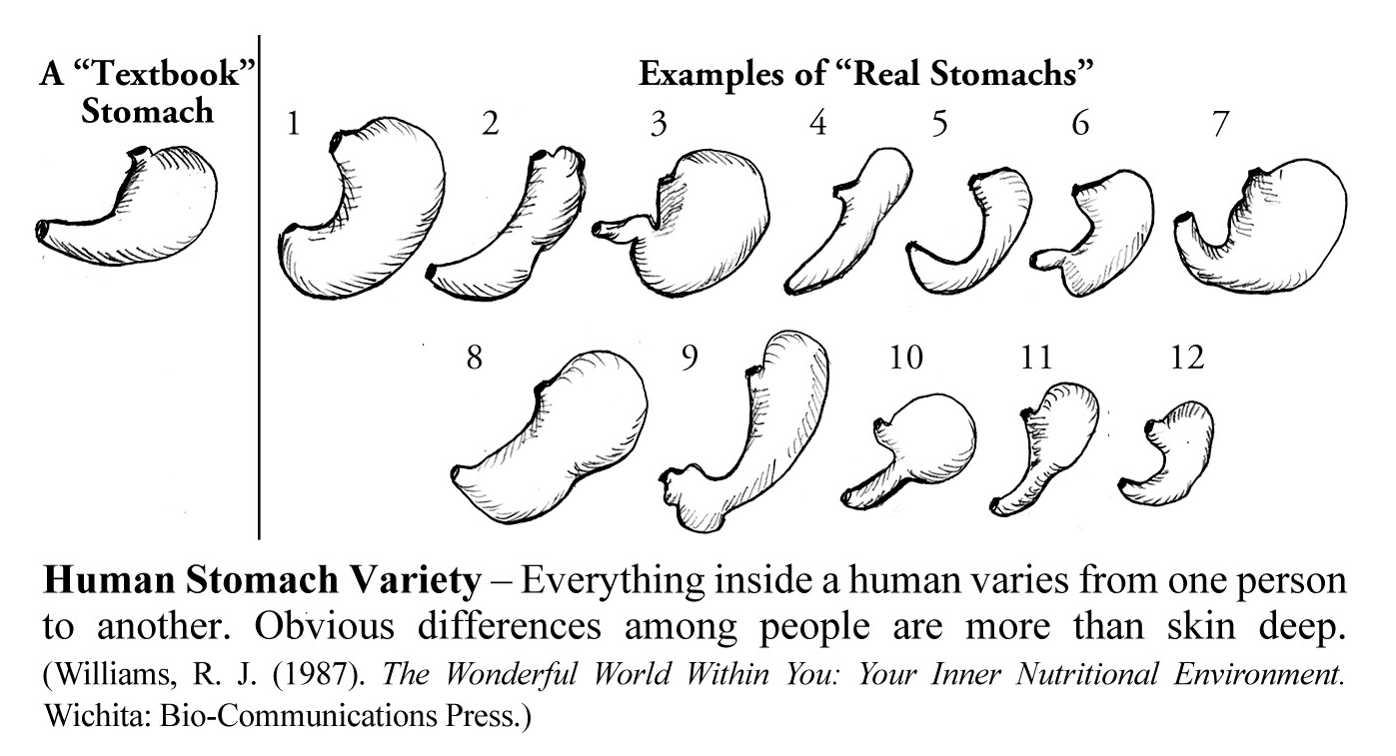

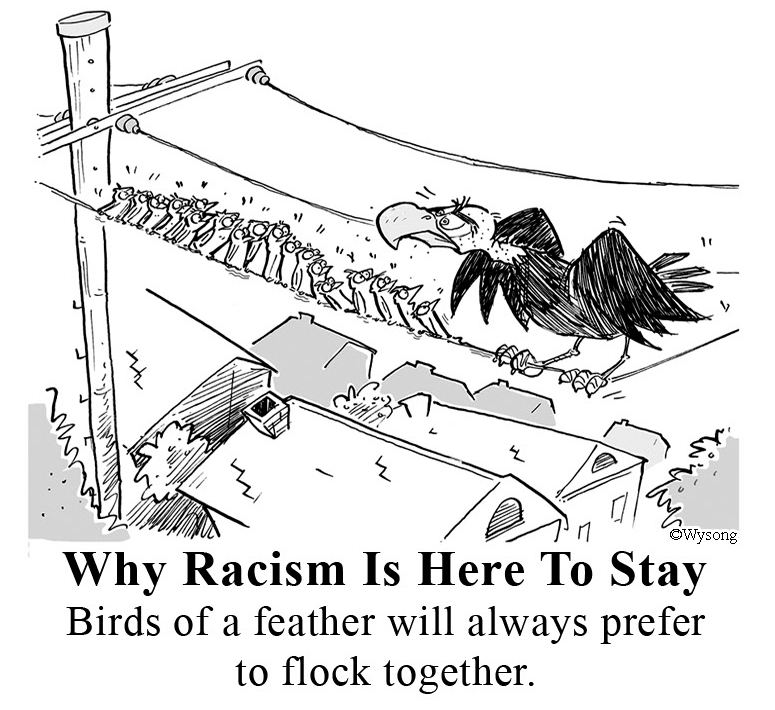
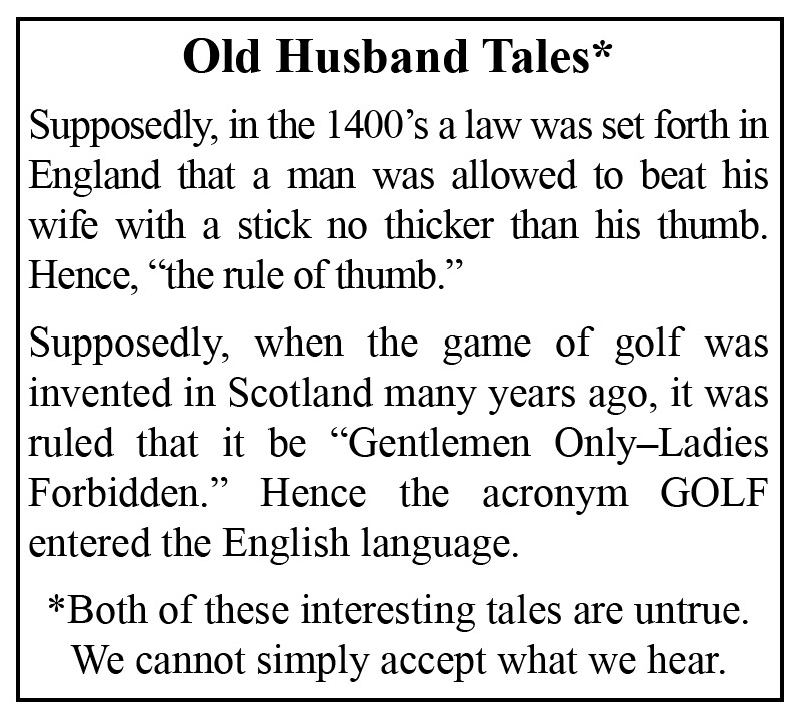
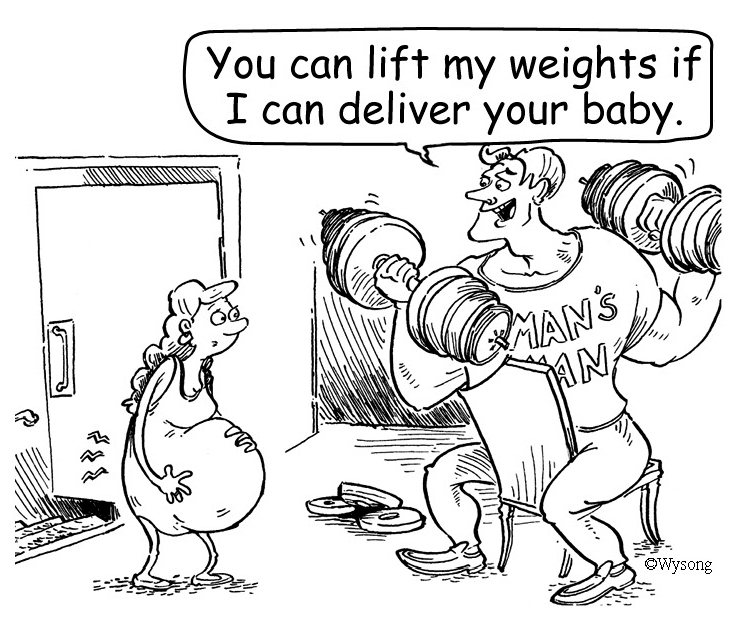
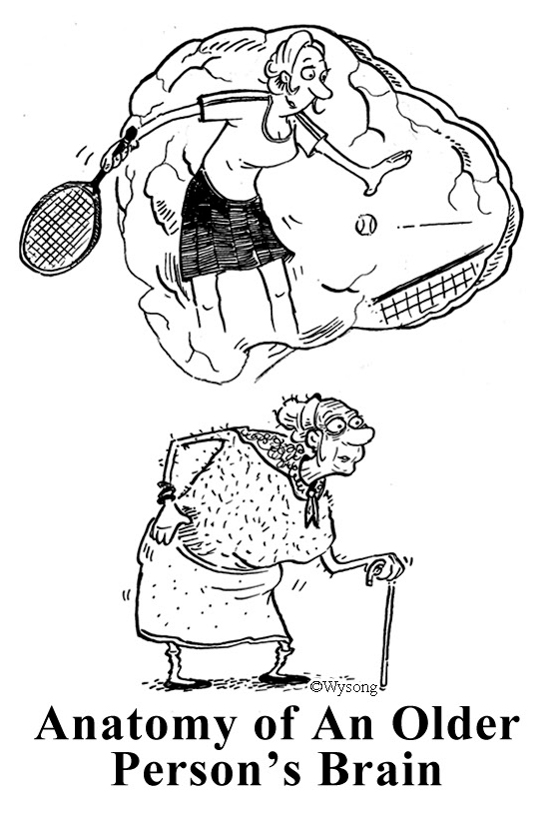
 RSS Feed
RSS Feed
 Twitter
Twitter
0 Comments